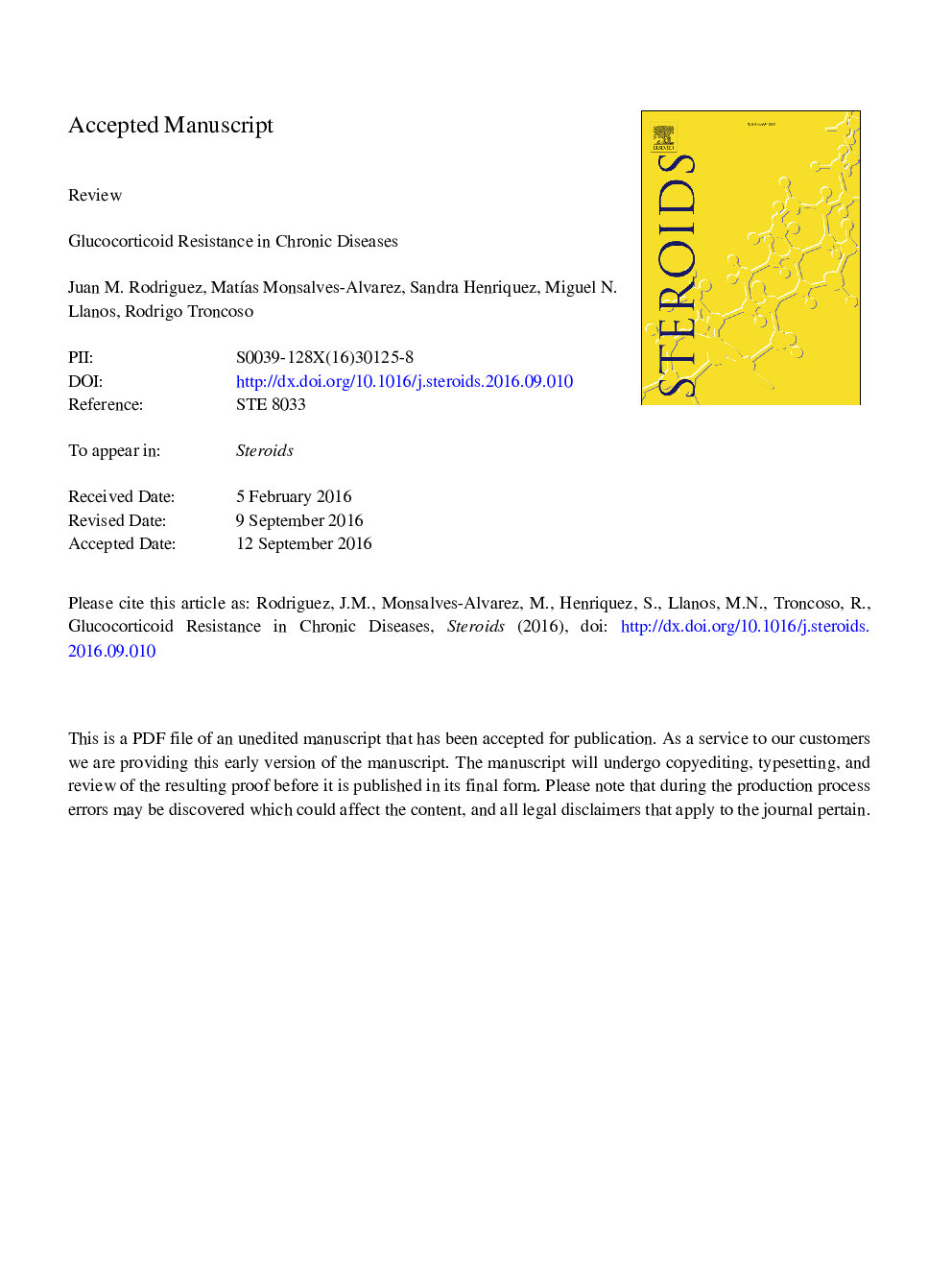| Article ID | Journal | Published Year | Pages | File Type |
|---|---|---|---|---|
| 8366669 | Steroids | 2016 | 40 Pages |
Abstract
Glucocorticoids are involved in several responses triggered by a variety of environmental and physiological stimuli. These hormones have a wide-range of regulatory effects in organisms. Synthetic glucocorticoids are extensively used to suppress allergic, inflammatory, and immune disorders. Although glucocorticoids are highly effective for therapeutic purposes, some patients chronically treated with glucocorticoids can develop reduced glucocorticoid sensitivity or even resistance, increasing patient vulnerability to exaggerated inflammatory responses. Glucocorticoid resistance can occur in several chronic diseases, including asthma, major depression, and cardiovascular conditions. In this review, we discuss the complexity of the glucocorticoid receptor and the potential role of glucocorticoid resistance in the development of chronic diseases.
Keywords
NF-κBACTHhGR11β-hsd211β-Hydroxysteroid dehydrogenase type 2HDAC2PBMCsAP-1inflammationperipheral blood mononuclear cellsnuclear factor-κBHPAadrenocorticotropic hormoneHistone deacetylase 2activator protein-1cortisolCorticosteroneGlucocorticoidMineralocorticoid receptorglucocorticoid receptorHuman glucocorticoid receptor
Related Topics
Life Sciences
Biochemistry, Genetics and Molecular Biology
Biochemistry
Authors
Juan M. Rodriguez, MatÃas Monsalves-Alvarez, Sandra Henriquez, Miguel N. Llanos, Rodrigo Troncoso,
